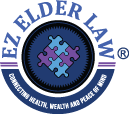
What is a Will? A Will, also known as a Last Will and Testament, is a document stating how your probate estate is distributed after you die. It has no legal effect until it is probated. In Georgia, Wills are probated in the Probate Court for the county where the decedent resided. What is a […]


